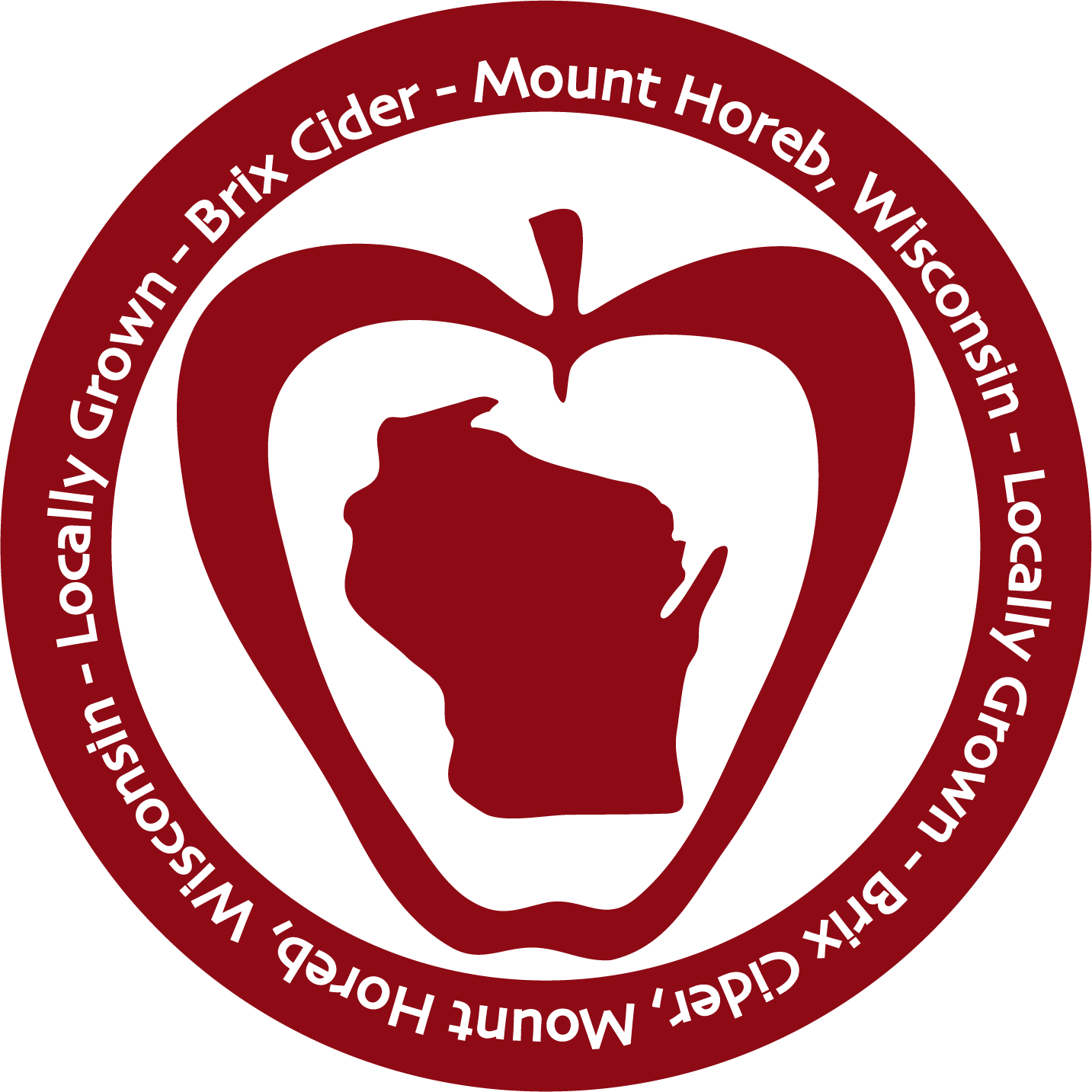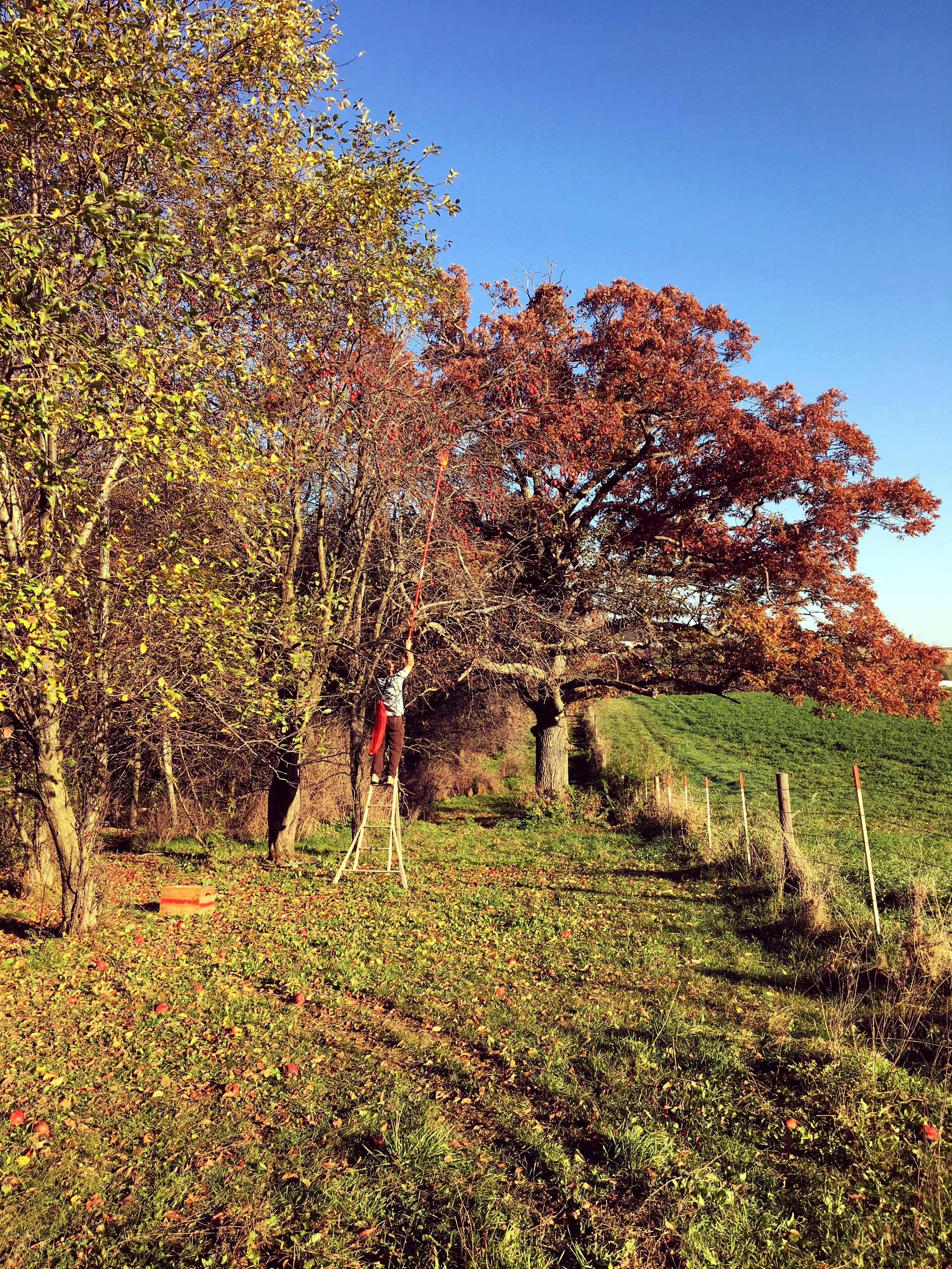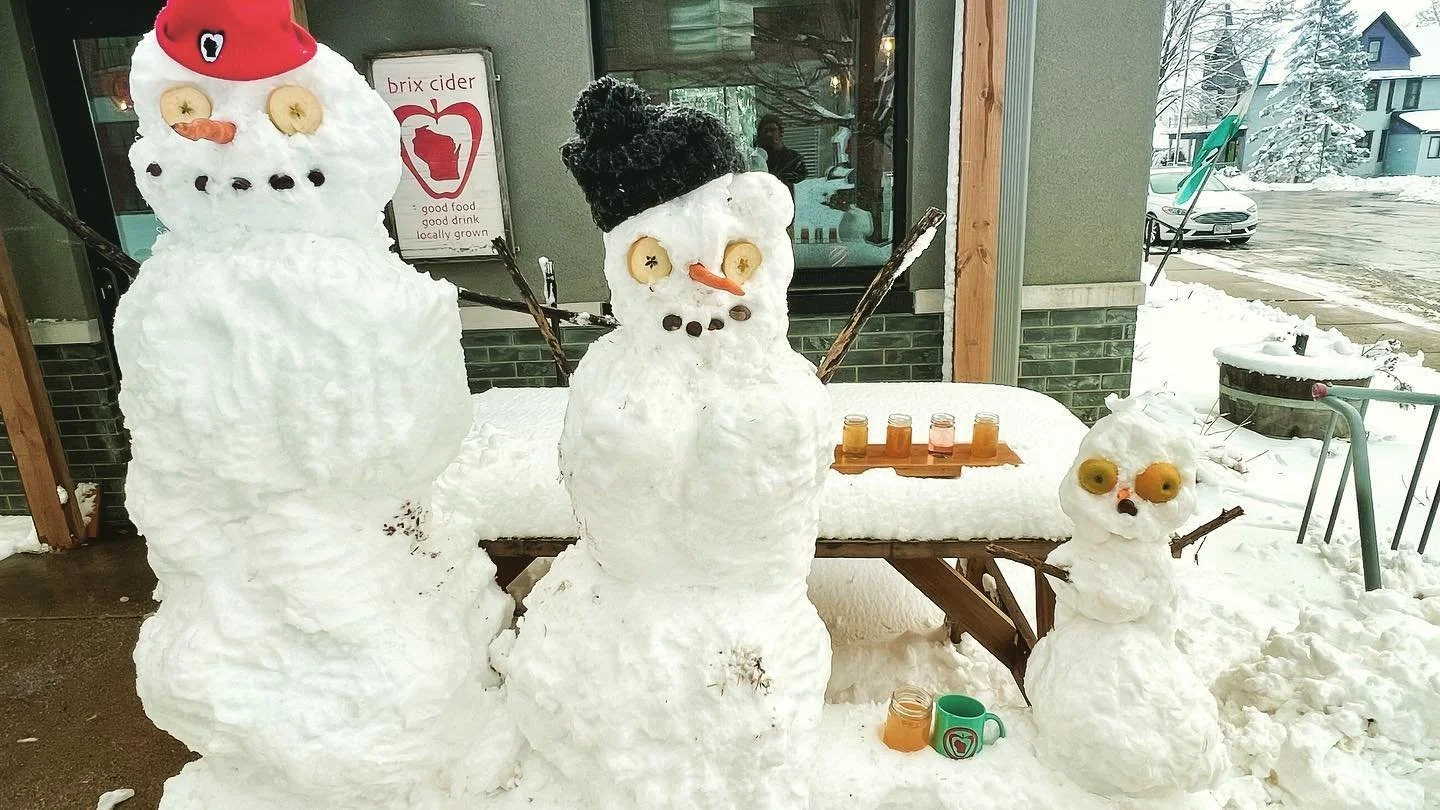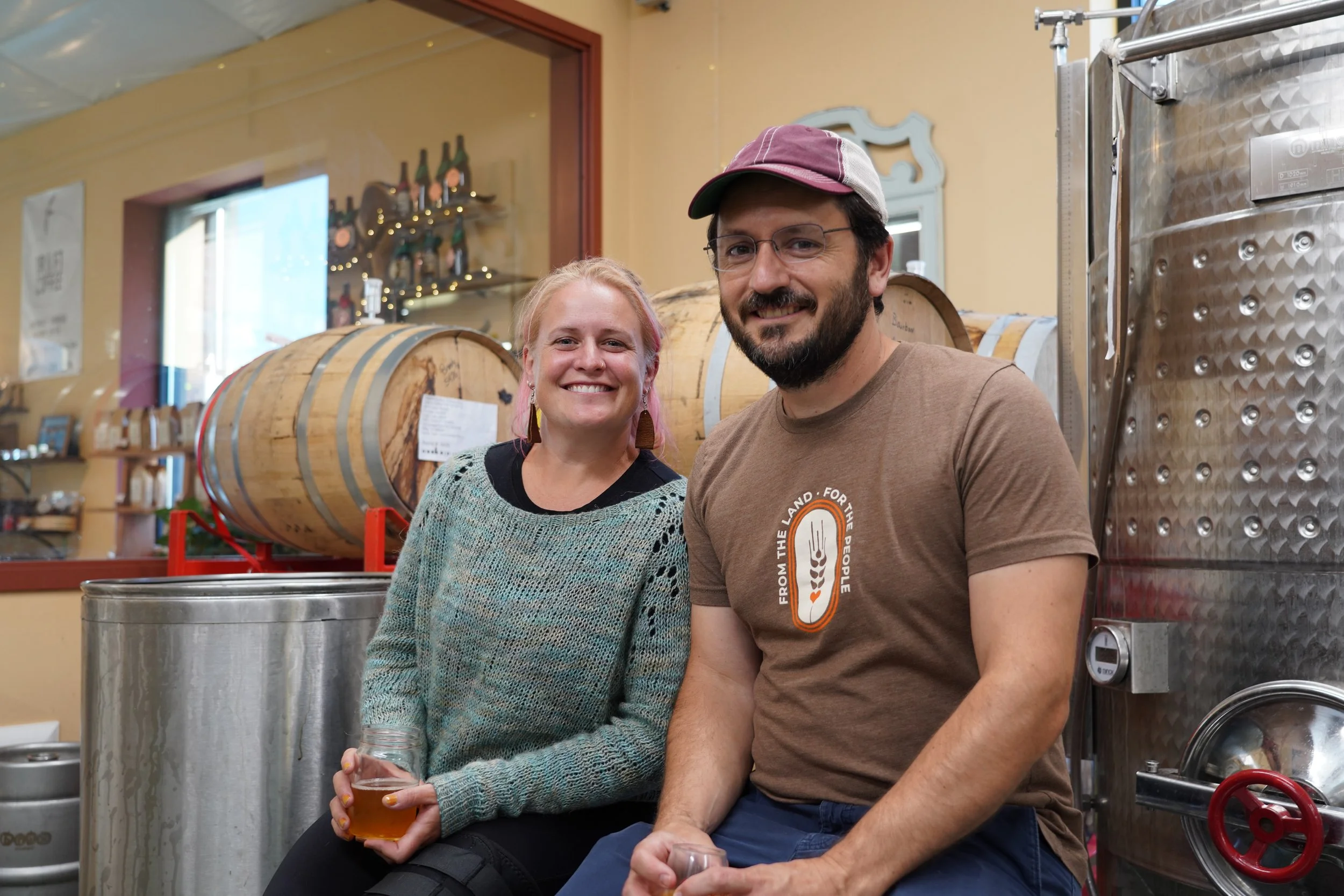Harvesting Wild Apples
"Here on this rugged and woody hill-side has grown an apple-tree, not planted by man, no relic of a former orchard, but a natural growth, like the pines and oaks... our wild apple is wild only like myself, perchance, who belong not to the aboriginal race here, but have strayed into the woods from the cultivated stock."
Henry David Thoreau in Wild Apples, 1862
Once you develop an eye for wild apples, you spot them everywhere - scattered in pastures, filling in fencerow gaps, or colonizing forest edges. Occasionally you find the remnants of an old orchard long abandoned where wild seedlings overtook the older, cultivated trees.
Above: Matt on a ladder picking from a wild apple tree
Wild apples can be very high above the ground, and some are small as crabs. Reaching up to pick them amidst unpruned branches can make slow work. After filling a few bushel boxes one begins to understand why most orchardists have transitioned to dwarf trees, which, for the most part, can be quickly picked with one's two feet still on the ground.
Above: A cluster of wild apple trees that provided a couple bushels of apples.
But unlike their cloned, cultivated cousins, the beauty of wild apples is that each tree brings a new surprise. No two taste quite alike. We found one so astringent that my teeth felt dry for 20 minutes after taking a bite. Another tasted like Marie's favorite childhood candy: Peachy Penguins. Some were mouth-puckering while others were sweet as nectar. A balanced blend of wild apples can make a cider far more intriguing than one made with common eating apples. That's why we're willing to do the slow work of harvesting them...
And it's also kind of fun. When I'm picking wild apples in some hidden corner of Wisconsin's Driftless region, I can feel for a moment like Thoreau, natural and alive, as uniquely individual as the wild trees themselves, as if I have "strayed into the woods from the cultivated stock."












